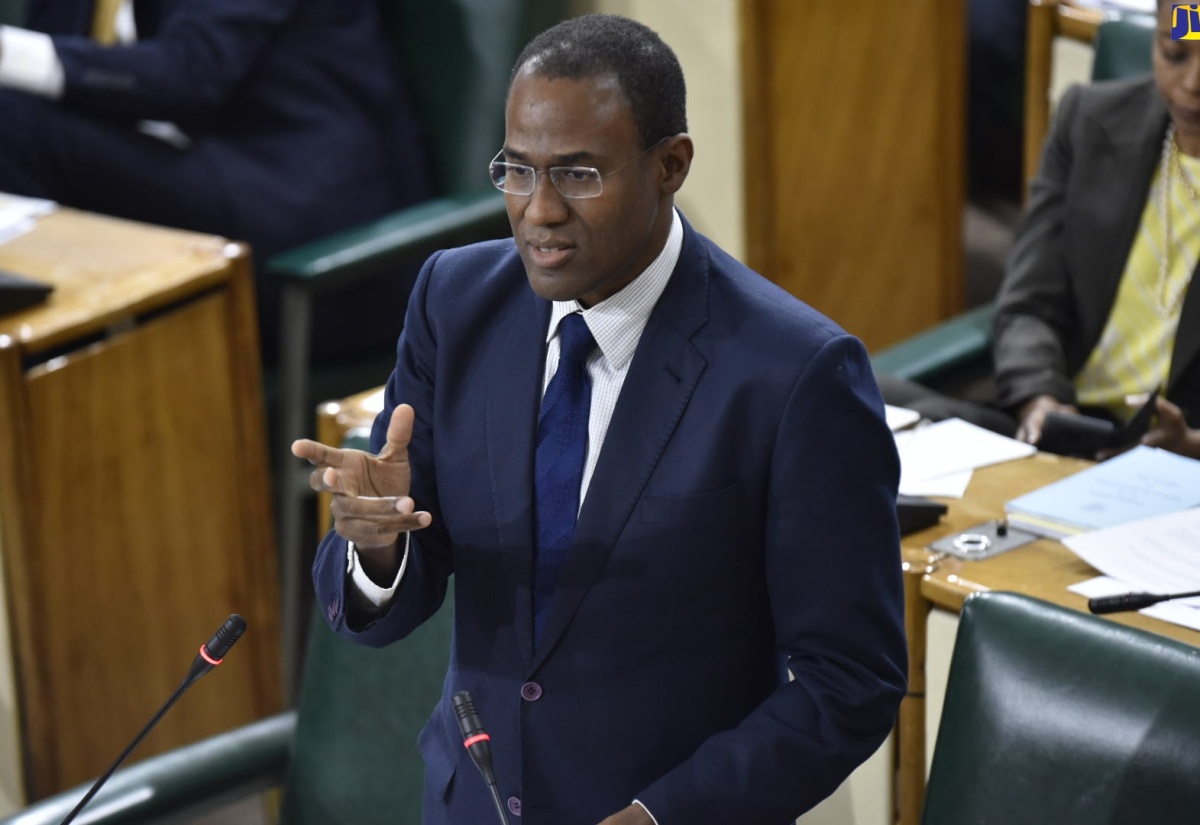Collective Stakeholder Efforts Key To Advancing Anti-Money Laundering Framework – Dr. Clarke
By: , January 29, 2020The Key Point:
The Facts
- Speaking in the House of Representatives on Tuesday (January 28), Dr. Clarke, who noted that extensive measures have, to date, been undertaken to improve the framework, said a vast amount of work remains to be done.
- “It is, therefore, imperative that Jamaica, via ministries and agencies with critical AML/CFT mandates, and the private sector collaborate in a national effort and marshal collective resources with the assistance of our international development partners, to address the gaps across the various systems and processes in the country’s overall AML/CFT regime,” he said.
The Full Story
Minister of Finance and the Public Service, Dr. the Hon. Nigel Clarke, says collective stakeholder efforts are required at all levels to significantly improve Jamaica’s Anti-Money Laundering and Counter-Financing of Terrorism (AML/CFT) framework.
Speaking in the House of Representatives on Tuesday (January 28), Dr. Clarke, who noted that extensive measures have, to date, been undertaken to improve the framework, said a vast amount of work remains to be done.
“It is, therefore, imperative that Jamaica, via ministries and agencies with critical AML/CFT mandates, and the private sector collaborate in a national effort and marshal collective resources with the assistance of our international development partners, to address the gaps across the various systems and processes in the country’s overall AML/CFT regime,” he said.
The Finance Minister told the House that robustly addressing the issue has taken on greater significance across the world as the Financial Action Task Force (FATF), the global standard setter for combatting money laundering and financing of terrorism, has increased its scrutiny of the country’s implementation of 40 recommendations and is also taking steps to penalise countries falling short of established stipulations.
According to Dr. Clarke, Jamaica, in its last evaluation for the period 2015/2016, spearheaded by the Caribbean Financial Action Task Force (CFATF), was found to have several weaknesses in relation to technical compliance and effectiveness.
He said based on the report, Jamaica was placed in enhanced follow-up by the CFATF, which meant that the country has to report on its progress. Two reports have, to date, been provided for May 2018 and May 2019.
Since then, Dr. Clarke said, Jamaica has undertaken a number of measures to implement the required recommendations.
These include amendments to the Proceeds of Crime Act; the Terrorism Prevention Act; the United Nations Security Council Resolution Implementation Act; amendment to the Companies Act; further enhancement by AML/VET supervisors, such as Bank of Jamaica and Financial Services Commission, targeting their supervisory practices and measures to develop the required risk-based approach to supervision.
Other measures include improvement to the operational framework of law-enforcement agencies and the completion of a National Risk Assessment of its money laundering and financing of terrorism risks in May 2016.
However, despite those measures, the Minister said several outstanding requirements remain to be undertaken.
These include finalisation of the National Risk Assessment to identify risks associated with the financial and designated non-financial businesses and professional (DNFBP) sectors, non-profit sector, terrorist financing, legal person’s and arrangements, proliferation financing, cross-border activities, tax evasion; finalising the inclusion of all designated non-financial institutions (DNFI)/DNFBPs in the AML/CFT regime; completing the necessary legislative amendments to bring the microfinance sector under AML/CFT requirements and commence implementation to ensure that adequate risk-based supervision of the sector is in place; correcting deficiencies in the framework for addressing targeted financial sanctions related to terrorism and terrorist financing to include demonstrable evidence that the implementation of targeted financial sanctions takes place without delay, and putting in place proper measures to enhance law enforcement and the justice system’s capacity to address money laundering and financing of terrorism-related issues.
Minister Clarke stressed that a strong AML/CFT regime will not only effectively combat money laundering, financing of terrorism and proliferation but also safeguard Jamaica’s financial system and national security interest.
“A strong AML/CUT framework will mean that Jamaica is seen by the world and our international partners as a diligent global citizen, intent on undercutting the underlying, primary profit-making motives related to crime, such as corruption, drug trafficking, market manipulation, fraud, tax evasion, along with any avenues used to conceal the proceeds of such crime or to further the reach of criminal enterprise,” he said.


